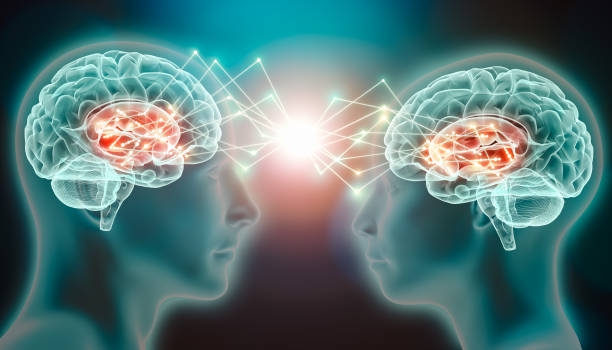In the quiet hours of the night, long after the noise of the day has settled, a familiar shadow often creeps in. It’s not a ghost in the room, but a ghost in the mind. A flicker of memory. A moment replayed. A path not taken. The word we give it is regret—that deep, aching sense that we could have done something differently, and everything might have changed.
Regret is among the most universally shared yet profoundly personal of emotions. It crosses cultures, spans centuries, and touches people regardless of age, background, or belief. Everyone knows its sting—the job offer turned down, the harsh word said in anger, the phone call never made, the love never pursued.
But what is regret, really? Why does it have such power over us? Why does it feel like an emotion that time can’t heal? And perhaps most intriguing of all—what is your brain actually doing when regret takes over?
To understand the emotional storm of regret, we must venture into the very heart of human consciousness. There, in the folds and electric circuits of the brain, lies a stunning story of survival, memory, identity, and learning.
This is the neuroscience of regret—and it’s a story about what it means to be human.
What Regret Isn’t: Not Just Sadness
Before diving into the brain’s architecture, it’s crucial to understand that regret isn’t just sadness in disguise. It’s a distinct emotion, with its own signature, triggers, and consequences.
Sadness is what we feel when something bad happens. Regret is what we feel when we believe something bad happened because of our own choices.
Regret is tied to agency—the sense that we had control, and we failed. It is tinged with “what ifs” and “if onlys.” It isn’t just about loss; it’s about the belief that loss could have been avoided.
In this way, regret is one of the most cognitive emotions we experience. It involves memory, imagination, causality, and self-awareness. You need to not only recognize what happened but also imagine an alternate version of reality where you acted differently and got a better outcome.
This mental simulation—the brain’s heartbreaking habit of rerunning the past while editing your actions—is the very engine of regret.
The Neuroscience of the “What If” Machine
Your brain is a master storyteller. It doesn’t just record reality—it edits, reshapes, and replays it. And nowhere is that more evident than in the neural architecture of regret.
At the center of this process is the orbitofrontal cortex (OFC)—a region just above the eyes that is deeply involved in decision-making and evaluation. The OFC helps the brain weigh choices, predict outcomes, and compare actual results with imagined ones.
When you experience regret, the OFC doesn’t just analyze what happened. It actively constructs what could have happened. It imagines the alternate path and then evaluates the emotional consequences of not taking it.
This comparison—between reality and potential reality—is the spark that ignites regret.
Functional MRI studies have shown that the OFC becomes highly active when people are asked to reflect on poor choices or missed opportunities. Even more fascinating, the OFC is uniquely responsive not just to bad outcomes, but to bad outcomes that resulted from our own decisions. When the loss is someone else’s fault, the OFC doesn’t light up as much. It’s as if the brain says, “That wasn’t on me.”
But when the fault lies with you, the lights in the OFC burn bright.
Meet the Amygdala: Regret’s Emotional Partner
Of course, regret isn’t purely logical. It carries a heavy emotional load—guilt, disappointment, shame, longing. These emotional tones are orchestrated by a small, almond-shaped structure deep in the brain: the amygdala.
The amygdala is the brain’s emotional sentinel. It responds to threats, pain, and emotionally charged memories. In the case of regret, it works closely with the OFC to tag certain memories with emotional intensity.
Let’s say you remember breaking up with someone who truly loved you. Your OFC might reconstruct a version of life where you stayed together and found happiness. Your amygdala will attach emotional significance to that alternate memory, making it feel real, even though it never actually happened.
This collaboration between the OFC and amygdala creates the vivid, haunting quality of regret. The brain doesn’t just think about a better outcome—it feels it, deeply.
It’s not imagination. It’s visceral. That’s why regret lingers in your gut, in your chest, in the pit of your soul.
Dopamine, Decision-Making, and Learning from Mistakes
But the story doesn’t end with emotion. Regret also has a purpose—one deeply rooted in evolution. Regret is part of your brain’s feedback loop. It’s there to teach you.
Enter dopamine, the neurotransmitter most often associated with pleasure and reward. But dopamine is also the messenger of prediction errors. When your brain expects one outcome and gets another, dopamine signals that something unexpected happened.
In the case of regret, dopamine circuits help the brain encode the difference between the choice you made and the reward you could have received. This signal—sometimes called a “regret signal”—is critical for learning. It tells the brain, “Next time, choose differently.”
This is why some regret can be adaptive. It helps us improve future decisions. It sharpens judgment. It motivates change.
But when regret becomes chronic—when we replay the same scene over and over, unable to move forward—the learning loop breaks. Instead of learning, we become stuck in a feedback spiral that feeds shame and rumination.
Why Some Regrets Hurt More Than Others
Not all regrets are created equal. Some barely sting. Others scar.
Neuroscience helps explain why.
One factor is closeness to an alternate outcome. Studies show that people feel more regret when the better outcome was almost within reach. Missing a train by 30 seconds hurts more than missing it by 10 minutes. Choosing option A when option B was right there—and would have changed your life—feels worse than choosing from a sea of unknowns.
This is called counterfactual thinking, and it’s a key ingredient of regret. Your brain is more likely to simulate a better alternative when that alternative seems plausible, obvious, or nearby.
Another factor is sense of responsibility. Regret hits harder when we believe the choice was fully ours. Being coerced or misled can soften the blow. But making a decision in full agency—and getting it wrong—leaves a deeper psychological wound.
Finally, irreversibility matters. If a mistake can still be corrected, regret might motivate action. But if the door is closed—if the job is gone, the person moved on, the years passed—regret turns into mourning. Your brain recognizes that no new choice can change the past. And that finality is what makes regret so painful.
The Brain’s Tug-of-War: Moving On vs. Holding On
One of the most difficult things about regret is that it sits at the intersection of acceptance and yearning. The brain wants to learn and move forward, but it also wants to revisit and rewrite.
This creates a mental tug-of-war.
The anterior cingulate cortex (ACC) is a brain region involved in conflict monitoring. It becomes active when we detect contradictions or emotional tension. In cases of regret, the ACC can fire when you revisit a choice you can’t change but still wish you could.
The conflict—between what you want and what is—triggers stress. That stress can manifest as restlessness, anxiety, insomnia, or even physical discomfort.
Over time, chronic regret can change brain chemistry. It may lower serotonin levels, heightening depression. It may alter the connectivity between emotional and rational regions, making it harder to regulate negative feelings.
In this way, regret can become self-sustaining. The more you regret, the more sensitized your brain becomes to regret. It’s not just psychological—it’s neurological.
Why Regret Is a Marker of Intelligence
Despite its pain, regret is not a weakness. It’s a sign of depth. It requires imagination, moral awareness, self-reflection, and emotional complexity.
Children under the age of seven rarely experience true regret. Their brains aren’t yet capable of constructing detailed counterfactuals. Likewise, certain types of brain injury—particularly to the OFC—can rob people of the ability to feel regret. Without it, they may struggle to learn from mistakes or empathize with others.
In a way, the ability to regret is a marker of intelligence—and of conscience.
Regret tells us we care. It tells us we are capable of seeing beyond our immediate desires. It tells us we have a vision of the kind of person we want to be.
But like any tool, it can be misused. Left unchecked, it can imprison the mind in the past, preventing us from living in the present.
Healing Regret: What Neuroscience Suggests
So how do we live with regret? How do we let it guide us without letting it consume us?
Neuroscience offers some clues.
Mindfulness meditation has been shown to reduce activity in the default mode network (the brain’s inner monologue loop), allowing us to detach from repetitive self-blame. By grounding ourselves in the present moment, we can interrupt the spiral of rumination.
Cognitive reappraisal, a technique used in therapy, involves reframing the story we tell ourselves. Instead of focusing on what was lost, we focus on what was learned. This technique engages the prefrontal cortex, helping to regulate emotion and reshape memory.
Self-compassion practices, championed by psychologist Kristin Neff and others, encourage us to treat ourselves with the same kindness we’d offer a friend. Studies show that self-compassion reduces activation in brain regions associated with shame and increases resilience.
And finally, narrative therapy allows us to write new endings to old stories. When we understand our regret within the context of our larger journey, we can find meaning in the pain.
After all, regret is a chapter. It’s not the whole book.
The Beauty in What Hurts
It’s tempting to wish regret away. To want a life without wrong turns, missteps, or missed chances. But such a life would be less rich, less real.
Regret is the emotional residue of choice. It means we lived. We cared. We reached. We fell short, but we dared to decide.
Your brain, in all its complexity, doesn’t haunt you with regret to punish you. It does so to teach, to remember, to evolve.
The people who feel regret deeply are often those with the richest inner lives. Their sorrow is not a sign of failure—it’s a sign of how much they hoped.
And hope, in the end, is why we keep moving forward.
Even when it hurts.
Even when no one sees.
Even when all we can do is imagine what might have been.






